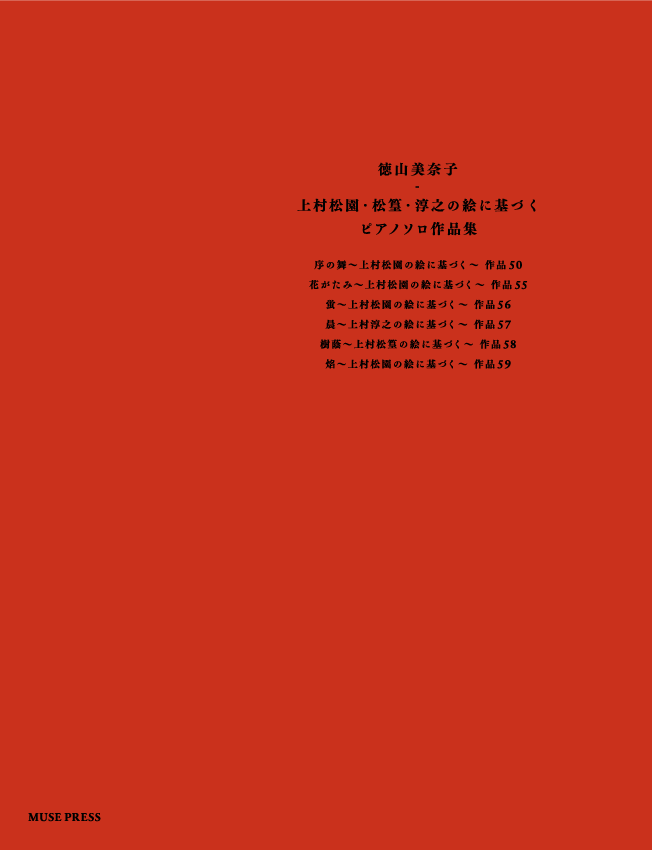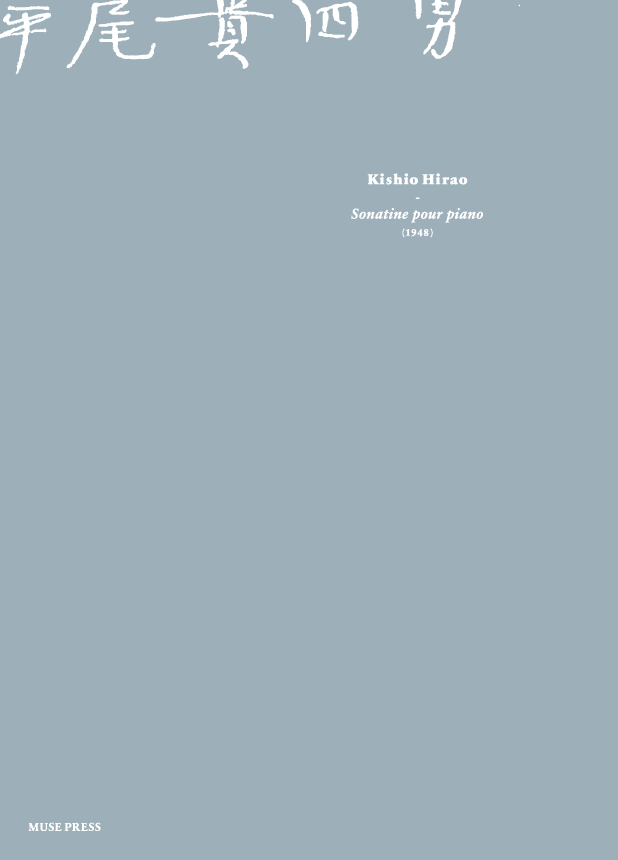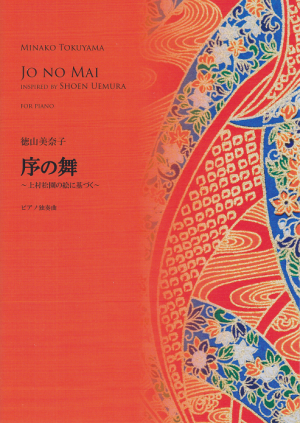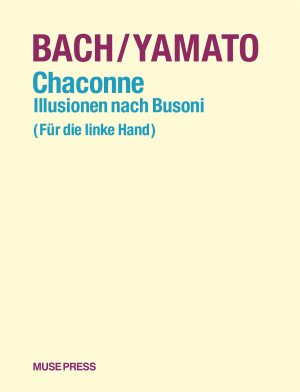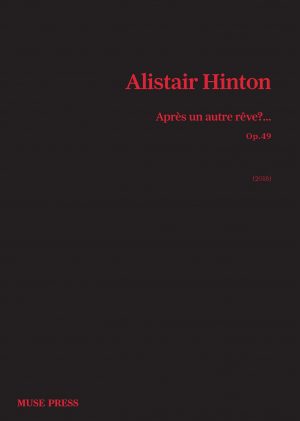Description
Shōen Uemura, the master of bijinga (portraits of beautiful women); Shōkō Uemura, the leading painter of flowers and birds; and Atsushi Uemura, who established his own distinctive style of kachōga (bird-and-flower painting). From mother to son to grandson, this lineage of three generations—the Uemura family—has inspired Minako Tokuyama to create a cycle of six piano works.
The series begins with Dance of Prelude (2018), commissioned by Kotaro Fukuma, followed by Hanagatami, Fireflies, Flame, Dawn, and Shade of a Tree. Each work transforms the imagery of the paintings into sound: Shōen’s idealized vision of womanhood and the noh (能) concept of Jo-Ha-Kyū; the tragic love of Hanagatami; the tenderness of mother and child; the intensity of the pandemic; the white hawk at daybreak; and the quiet presence of small birds resting in the summer shade.
Through repeated performances and revisions, the composer has further refined these works, offering a new addition to Japan’s repertoire that can proudly stand on the world stage.
Contents
Dance of Prelude — after a painting by Shōen Uemura, Op. 50
Hanagatami — after a painting by Shōen Uemura, Op. 55
Fireflies — after a painting by Shōen Uemura, Op. 56
Dawn — after a painting by Atsushi Uemura, Op. 57
Shade of a Tree — after a painting by Shōkō Uemura, Op. 58
Flame — after a painting by Shōen Uemura, Op. 59
Dance of Prelude — after a painting by Shōen Uemura, Op. 50
An homage to Shōen’s Dance of Prelude, in which the ideal image of a woman is depicted with quiet dignity. Commissioned by Kotaro Fukuma and premiered at Kyoto Concert Hall in 2018, the work has since been performed widely across Europe, drawing much attention.
Hanagatami — after Shōen Uemura, Op. 55
Based on the noh play Hanagatami, this work unfolds like a silent film, a “drama to be seen with the ears.” From vacant gazes and the shape of hands to the shadow of each step, Shōen’s brushwork is transformed into sound, culminating in the “Dance of Madness.” Revised after its 2022 premiere, this edition represents the definitive score.
Shade of a Tree — after Shōkō Uemura, Op. 58
A small bird, the Brown-headed Thrush, seeking refuge in the shade of a summer tree. Beneath Shōkō’s gentle brush lies a prayer of closeness to the great maternal tree. A quiet miniature, like a ray of light gently entering daily life.
Dawn — after Atsushi Uemura, Op. 57
At dawn, as the full moon lingers, a white hawk cuts through the sky. Composed in a single sweep of intuition, the piece traces a pure arc toward its final flight. Clarity of touch and transparency of resonance are key. This new edition refines dynamics and articulation from the 2022 premiere version.
Fireflies — after Shōen Uemura, Op. 56
The presence of time within a single firefly. Centered on echoes of a children’s song, the piece moves through the shifting emotions of Shōen’s various Fireflies paintings—innocent yukata, whispers between mother and daughter, the faint figures behind bamboo blinds, and finally her last work, Early Summer Evening.
Flame — after Shōen Uemura, Op. 59
Composed in a single day, on the morning of a canceled concert, this is music of fire born from impulse. The fierce spirit of Lady Rokujō collides with clusters of sound—“clusters” as both pandemic outbreaks and musical sonorities—where dissonance transforms into beauty.
Minako Tokuyama — Profile
After attending the Music High School attached to Tokyo University of the Arts, Tokuyama graduated from Tokyo University of the Arts and later the Berlin University of the Arts. She studied composition with Tomojiro Ikenouchi, Akio Yashiro, and Isang Yun.
She received the Excellence in Composition Prize at the 5th Fukui Harp Festival International Composition Competition (1992), and served as a jury member in 1995. The same year, she won first prize at the Vienna International Composition Competition under Claudio Abbado (the first Japanese laureate). Her ballet Memento Mori, awarded at the competition, was premiered at the Wien Modern Festival (1996) and later staged by the Vienna State Opera Ballet in 1997.
Tokuyama has served as a judge for the Japan Music Competition (2003, 2004) and was commissioned to compose for the Hamamatsu International Piano Competition (2006). Her works include Musica Nara (set piece, Hamamatsu), Oriental Garden (set piece, Japan Harp Competition, 2017), and many others, performed by leading artists such as Naoko Yoshino and Kotaro Fukuma.
Her style, both dignified and graceful, has earned repeated performances worldwide. Dance of Prelude — after Shōen Uemura (2018) was described by Le Monde as “music as delicate as silk.” At the same time, she has written approachable works such as The Town of Deep-Sea Fish for NHK’s Minna no Uta.
In recent years she has composed monodramas and many works dedicated to Yasuto Kasuga and Nobuko Kasuga. Her latest oratorio The Path of Light — The Love of Hosokawa Gracia (with Yasuto Kasuga as Tadaoki Hosokawa), premiered in January 2025 under the baton and pianism of Kaze Jitsukawa, received great acclaim.

